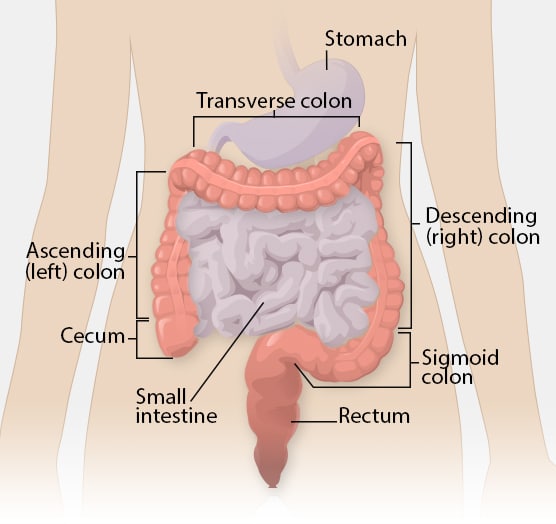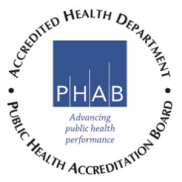Colorectal Cancer Information
Colorectal cancers can be broken into two sections, the colon, and the rectum. These cancers can form in the inner lining of the colon or rectum and usually begin as noncancerous polyps which are unusual, small growths of tissue in the lining.
Colorectal cancer can be a slow-growing cancer that does not always show symptoms at the beginning, which is why screening is so important. If you have any of these symptoms, talk to your doctor about getting screened.

- Feeling that your bowel does not empty completely
- Finding blood (either bright red or very dark) in your stool
- Finding your stools are narrower than usual
- Frequently having gas pains or cramps, or feeling full or bloated
- Losing weight for no known reason
- Feeling very tired all the time
- Having nausea or vomiting.
- A common symptom of colorectal cancer is a change in bowel habits.
The two main risk factors for colorectal cancer are age and family history. However, it is important to note that there are other factors that can increase your risk for colorectal cancer. Read more about CRC risk factors. To reduce your risk of colorectal cancer it is important to be physically active, reduce or quit your alcohol and tobacco use, and reduce your red meat consumption.
Colorectal Cancer Screening Options
Screening can detect colorectal cancer early when it is more likely to be curable. The United States Preventive Services Task Force (USPSTF) recommends those aged 45-75 years old be screened. The American Cancer Society (ACS) and the American College of Gastroenterology (ACG) also come out with screening recommendations every year. The table below has the type of test and what the recommendations are for that test. There are many affordable screening options that are available to you, including take-home tests. Talk to your doctor about which test is the best option for you and remember that the best test is the one that gets done!
CRC Screening Options Table
| Test | Definition | USPSTF | ACG | ACS |
|---|---|---|---|---|
| FOBT KIT | The test stands for fecal occult blood test. This is a take home test that uses guaiac (a substance from a plant that coats the test cards) to detect blood in the stool. | Annually | Annually | Annually |
| FIT KIT | This stands for fecal immunochemical test. This take home stool test uses antibodies to check for blood in the stool. | Annually | Annually | Annually |
| FIT-DNA or sDNA (Stool DNA) | This take home stool test uses a whole stool sample to check for DNA changes in the stool. | Every 1-3 year | Every 3 years | Every 3 years |
| CT colonoscopy (virtual colonoscopy) | This test uses x-rays to check images for the entire colon for polyps. It should be done every 5 years. | Every 5 years | Every 5 years | Every 5 years |
| Flexible Sigmoidoscopy | This test uses a short, flexible, lighted tube to check for polyps and cancer in the rectum and lower third of the colon. Polyps and cancers found can be removed during the procedure. | Every 5 years OR Every 10 years with a FIT test every year. | Every 5-10 years | Every 5 years |
| Colonoscopy | This test uses a long, flexible, lighted tube to check for polyps and cancer in the rectum and the entire colon. Polyps and cancers found can be removed during the procedure. | Every 10 years | Every 10 years |


